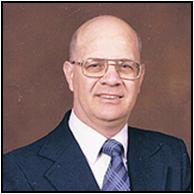 |
|
| Volume 22 Number 6 June 2020 | Page 10 |

Mark McWhorter
 The writer of the letter to the Hebrews encouraged Hebrew Christians to remain faithful to Christ. These Christians were being influenced to go back to the Old Law. The writer warned Christians that disobedience brings negative judgment from God.
The writer of the letter to the Hebrews encouraged Hebrew Christians to remain faithful to Christ. These Christians were being influenced to go back to the Old Law. The writer warned Christians that disobedience brings negative judgment from God.
Hebrews 3:8-9 reads, “Harden not your hearts, as in the provocation, in the day of temptation in the wilderness: When your fathers tempted me, proved me, and saw my works forty years.” The specific reference is to Exodus 17 and is a quote of the Septuagint of Psalm 95:8. It describes one of the times after the Israelites came out of Egypt that they complained to God.
In Numbers 14:22, God told the Israelites they had tempted Him ten times. Because of the ten times (which is the same number of plagues that God had brought on the Egyptians), God would make them wander for a total of 40 years. (Deuteronomy 2:14 says it was 38 more years from the time God made His statement of condemnation.)
God does not specifically mention the ten incidents. However, there are ten incidents recorded (Exodus 6:9-12; 14:10-12; 15:23-26; 16; 17:1-7; 32; Numbers 11:1, 4-33; 12:1-15; 14). We do not know if these are the exact ones that God meant, but it is curious that Moses recorded these. The point is still true: God is patient but will bring negative judgment on those who disobey. He did so under the Old Covenant, and He will do so under the New Covenant.
Study your Bible. Learn all you can about God. Make sure you obey Him. If any of this is hard to understand, ask an adult to help you.![]()
[Editor’s Note: “Ten times” may or may not refer to specific occasions. The number 10 represents the idea of something that is complete. In any case, the Israelites wandering in the Sinai Peninsula following their exodus from Egypt completely exhausted God’s patience with them. Our continual disobedience today will likewise exhaust God’s patience with us (2 Peter 3:9-12). ~ Louis Rushmore, Editor]
Remember Me
Donald R. Fox
 For the most part, all of us want to be remembered. We want our family members, our friends and those with whom we are acquainted to recognize us. We want folks to talk to us. We don’t want to be ignored because we are not in the well-liked or well-known group. We may be shy and not up to par in many respects, but please “remember me.” “I think that’s what we all want, in the end. To know that we left footprints when we passed by, however briefly. We want to be remembered. So remember us. Please. Remember us” (Lancaster).
For the most part, all of us want to be remembered. We want our family members, our friends and those with whom we are acquainted to recognize us. We want folks to talk to us. We don’t want to be ignored because we are not in the well-liked or well-known group. We may be shy and not up to par in many respects, but please “remember me.” “I think that’s what we all want, in the end. To know that we left footprints when we passed by, however briefly. We want to be remembered. So remember us. Please. Remember us” (Lancaster).
Even the most prominent people in the annals of history are forgotten. Out of mind and with the passing of time, many even within their own lifespans are forgotten. It is strange that evil people often are remembered and good people are forgotten. Hitler is an example of such evil remembrance. The forgetting of Joseph with all he accomplished and Pharaoh making him ruler over Egypt is very sad. “Now there arose up a new king over Egypt, which knew not Joseph” (Exodus 1:8 KJV). This is proof that men have short memories when it comes to remembering.
When all forsake us and forget us, our God will remember. “Nehemiah 13:31: ‘Remember me, O my God, for good’—The best services done to the public, have sometimes been forgotten by those for whom they were done, therefore Nehemiah refers himself to God to be recompensed by him, and then doubts not but he shall be well paid. This may well be the summary of our petitions: we need no more to make us happy but this, Remember me, O my God, for good” (Benson). “Now there was found in it a poor wise man, and he by his wisdom delivered the city; yet no man remembered that same poor man” (Ecclesiastes 9:15). “But the mercy of the LORD is from everlasting to everlasting upon them that fear him, and his righteousness unto children’s children; To such as keep his covenant, and to those that remember his commandments to do them” (Psalm 103:17-18).![]()
Works Cited
Benson, Joseph. Benson Commentary. New York: T. Carlton & J. Porter, 1857.
Lancaster, Mike A. Human.4. Seattle: Egmont USA, 2011.